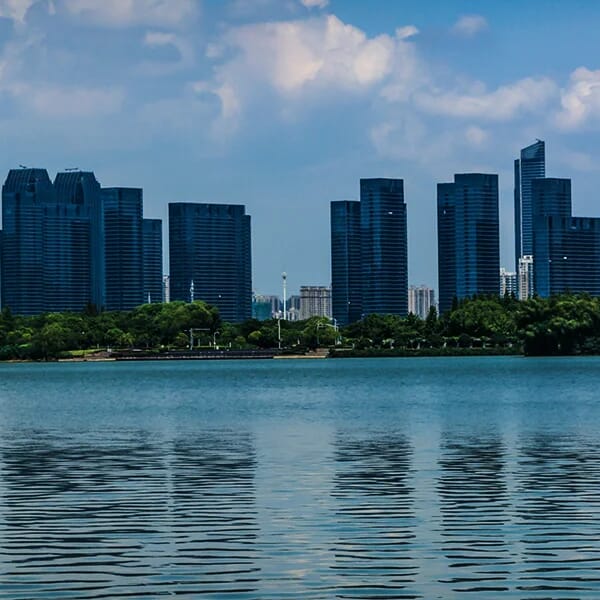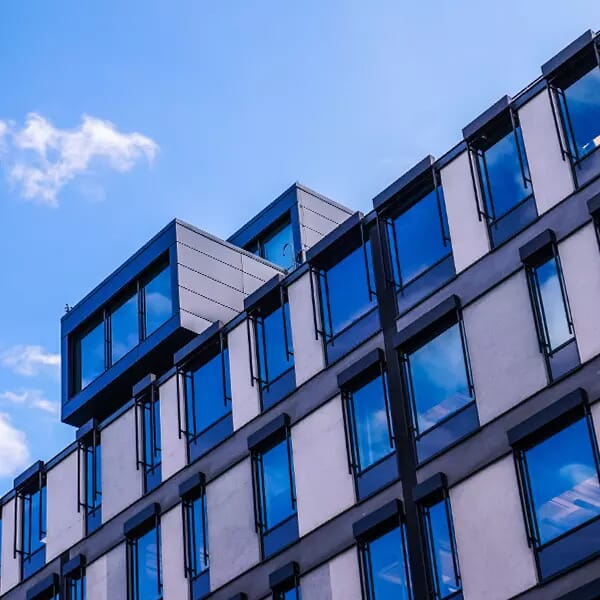 Credit: Givaga / Envato Elements
Credit: Givaga / Envato ElementsHow to demolish a building in Paris
The latest developments in the City of Light’s controversial urban plan
January 11, 2023Real Estate
Even if you don’t currently have any plans to demolish property in the French capital, there are a number of reasons why it is worth learning more about the Paris Local Urban Plan (Plan Local d’Urbanisme, or PLU).
The PLU is a regulatory document with two primary functions - the first being to act as a strategic plan outlining the evolution of Paris over the next 10-15 years, and the second being to provide the rules and regulations governing exactly how these developments will be carried out. Such planning plays an important role in tackling a serious dilemma that affects many historic cities - how to preserve the identity and heritage of these iconic locations while at the same time modernising to meet the needs of the future.
First introduced in the early 2000s, the PLU came into force in 2006 and gradually replaced the Land Use Plan (Plan d’Occupation des Sols, or POS) before undergoing a series of revisions which continue to this day. One key aspect of these revisions has been to incorporate and address the environmental issues that affect urban planning in an effort to achieve sustainable development.
Initially addressed in 2021 as a sub-document of the PLU known as the Planning and Sustainable Development Project (Projet d’aménagement et de développement durable, or PADD), these matters have grown in importance to such an extent that the latest drafts of the regulations are now referred to as the Bioclimatic PLU (PLU bioclimatique, or PLUb).
The 15 minute city concept, whereby it is possible for residents to reach essential services such as accommodation, culture, and health facilities within a quarter of an hour distance either on foot or via bike ride, is an ambitious goal set out by the PLUb but one which could have significant ramifications on the zoning of assets as well as the success or failure of planning proposals receiving permits.
Planning and construction rules set out by the PLUb cover aspects including alterations to property use, maximum permitted building height, specific architectural requirements, public utility services and requirements, and more. Development constraints are another key issue addressed in the plan and will include means by which public spaces, public utilities, green spaces, major infrastructure projects, historic sites, and monuments, will be identified, categorised, and protected.
One tool that was introduced during revisions to the plan in April 2022 is the Urbascore. This is a mechanism that will enable the evaluation of construction and renovation proposals in an effort to encourage more environmentally and socially virtuous projects. Proposed projects will be analysed according to nine criteria divided between three categories and must not only meet the minimum standards but actually exceed them in at least three criteria from two of the categories before receiving permits. The three assessment divisions cover nature and vegetation, the social and functional diversity of the destination, as well as the project’s energy efficiency and carbon neutrality.
With natural disasters - and especially flooding - posing an increasing threat to Paris, the assessment of project risks is another important factor to be addressed. The PLUb is supplemented with - and at times overruled by - the Risk Prevention Plan (Plan de Prévention des Risques, or PPR), which is used to categorise areas of higher risk where construction or renovation may be prohibited or limited according to specific criteria.
In response to some of these issues, the government held a series of public forums during the latest round of PLUb revisions - initiated in January 2021 - to encourage discussion on the subject. The online #Saccage campaign criticised what it called contradictory actions on the part of the local government when it announced plans to improve soil permeability while at the same time overseeing the construction of the controversial 42-storey tall Tour Triangle - the first skyscraper to be built in Paris since the still bemoaned Tour Montparnasse in 1973.
The environmental aspects of the PLUb received a guarded reception, with concerns from opposite sides of the issue that the plans will either go too far and negatively affect business and the local economy, or that they will be too ineffectual to achieve any real response to the climate crisis. The source of consternation for both sides stems largely from the uncertainty around how the final legislation will eventually be worded.
Although the last of the three public forums concluded in December 2022, the revisions themselves are not expected to be concluded until late 2023 or early 2024. This leaves plenty of time for changes to be made, new concerns to be raised, and plans to be developed. And what better location could there be to formulate strategies than at France GRI 2023 - taking place on April 18-19 in Paris - where you’ll be surrounded by other industry leaders including senior investors, lenders, and developers active in the French real estate market all looking to share valuable insights, build high-value relationships, and discuss the ongoing transactions taking place in the region.

Written by Rory Hickman
The PLU is a regulatory document with two primary functions - the first being to act as a strategic plan outlining the evolution of Paris over the next 10-15 years, and the second being to provide the rules and regulations governing exactly how these developments will be carried out. Such planning plays an important role in tackling a serious dilemma that affects many historic cities - how to preserve the identity and heritage of these iconic locations while at the same time modernising to meet the needs of the future.
First introduced in the early 2000s, the PLU came into force in 2006 and gradually replaced the Land Use Plan (Plan d’Occupation des Sols, or POS) before undergoing a series of revisions which continue to this day. One key aspect of these revisions has been to incorporate and address the environmental issues that affect urban planning in an effort to achieve sustainable development.
Initially addressed in 2021 as a sub-document of the PLU known as the Planning and Sustainable Development Project (Projet d’aménagement et de développement durable, or PADD), these matters have grown in importance to such an extent that the latest drafts of the regulations are now referred to as the Bioclimatic PLU (PLU bioclimatique, or PLUb).
Goals of PLUb
The primary goals established for the PLUb at present are fivefold: To promote the inclusivity and unity of Paris; To preserve the heritage, landscape, and vegetation of the city; To address the climate crisis by working to become sustainable, resilient and carbon-free; To protect the beauty of the city while encouraging productivity and growth; And, finally, to address all of these issues in such a way as to benefit Paris and the surrounding metropolis as a whole.The 15 minute city concept, whereby it is possible for residents to reach essential services such as accommodation, culture, and health facilities within a quarter of an hour distance either on foot or via bike ride, is an ambitious goal set out by the PLUb but one which could have significant ramifications on the zoning of assets as well as the success or failure of planning proposals receiving permits.
Planning and construction rules set out by the PLUb cover aspects including alterations to property use, maximum permitted building height, specific architectural requirements, public utility services and requirements, and more. Development constraints are another key issue addressed in the plan and will include means by which public spaces, public utilities, green spaces, major infrastructure projects, historic sites, and monuments, will be identified, categorised, and protected.
One tool that was introduced during revisions to the plan in April 2022 is the Urbascore. This is a mechanism that will enable the evaluation of construction and renovation proposals in an effort to encourage more environmentally and socially virtuous projects. Proposed projects will be analysed according to nine criteria divided between three categories and must not only meet the minimum standards but actually exceed them in at least three criteria from two of the categories before receiving permits. The three assessment divisions cover nature and vegetation, the social and functional diversity of the destination, as well as the project’s energy efficiency and carbon neutrality.
With natural disasters - and especially flooding - posing an increasing threat to Paris, the assessment of project risks is another important factor to be addressed. The PLUb is supplemented with - and at times overruled by - the Risk Prevention Plan (Plan de Prévention des Risques, or PPR), which is used to categorise areas of higher risk where construction or renovation may be prohibited or limited according to specific criteria.
Cause for concern
With its far-reaching influence on a wide range of players, it is little wonder that the PLUb has drawn significant attention. Certain aspects of the PLUb revisions have raised a number of concerns among Parisians, drawn ire from some sectors, and made it a highly contentious issue for the French capital. The origins of this criticism range from the political to the practical, with legal, financial, and operational matters all contributing at each level.In response to some of these issues, the government held a series of public forums during the latest round of PLUb revisions - initiated in January 2021 - to encourage discussion on the subject. The online #Saccage campaign criticised what it called contradictory actions on the part of the local government when it announced plans to improve soil permeability while at the same time overseeing the construction of the controversial 42-storey tall Tour Triangle - the first skyscraper to be built in Paris since the still bemoaned Tour Montparnasse in 1973.
The environmental aspects of the PLUb received a guarded reception, with concerns from opposite sides of the issue that the plans will either go too far and negatively affect business and the local economy, or that they will be too ineffectual to achieve any real response to the climate crisis. The source of consternation for both sides stems largely from the uncertainty around how the final legislation will eventually be worded.
Although the last of the three public forums concluded in December 2022, the revisions themselves are not expected to be concluded until late 2023 or early 2024. This leaves plenty of time for changes to be made, new concerns to be raised, and plans to be developed. And what better location could there be to formulate strategies than at France GRI 2023 - taking place on April 18-19 in Paris - where you’ll be surrounded by other industry leaders including senior investors, lenders, and developers active in the French real estate market all looking to share valuable insights, build high-value relationships, and discuss the ongoing transactions taking place in the region.

Written by Rory Hickman







